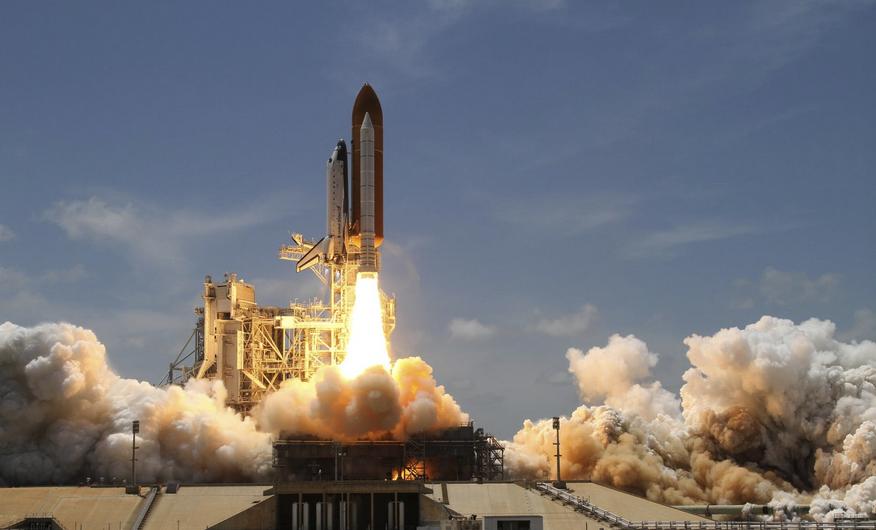Recently, China's Shijian-21 satellite dragged the abandoned Beidou-2 satellite into "graveyard orbit" and then returned to low-Earth orbit. Why has this incident aroused so much discussion in the United States? This brings us to an impending "rocket strike on the moon."
In 2015, Musk's SpaceX launched a rocket, the Falcon IX, in Florida, USA, but after completing the mission, the rocket could not return to Earth due to lack of fuel and became space junk. But after 7 years of drifting, experts calculate that it will hit the moon after January (around March 4). Some physicists say this will be the first known uncontrolled rocket hitting the moon.

Put these two things together, and you know the Attitude of the United States. To put it bluntly, China's space power is developing at a pace that exceeds the expectations of the United States. This incident made the United States see that China can drag space junk to the "cemetery orbit" in space, which undoubtedly makes the United States feel like a fish in the throat.
In addition to space technology, the chip industry that is most affected by the United States in the mainland has also sent good news, and a catastrophe that makes global technology giants such as Huawei, Qualcomm, and Intel hang a heart may be eliminated.
In September 2020, in order to supplement cash flow, SoftBank officially announced the sale of its ARM to Nvidia for a price of $66 billion, equivalent to more than 420 billion yuan.
As soon as this news came out, the industry was in an uproar. One is because it is the largest transaction in the history of the chip industry; the other is unanimously opposed by huawei, Qualcomm, Microsoft, Samsung and other large companies in various countries. In the eyes of these companies, once ARM is in the hands of Nvidia, ARM's business model may change, which will bring new obstacles to the development of the global chip industry.
Why did ARM become a threat to the industry when it got into the hands of NVIDIA?
To put it simply, NVIDIA is a display chip company. Its founder and CEO is Taiwanese-American Huang Jen-hoon. From a national standpoint, this is an American company.
In 1999, Nvidia became a global leader in computer graphics processing technology by inventing the GPU, an AI universal chip. At present, the business involves games, artificial intelligence, automatic driving, life sciences, cloud data centers and other fields.
ARM, the world's leading provider of semiconductor intellectual property (IP), has its current business model of only launching IP cores and not chip production. To put it bluntly, ARM is a licensed technology company that mainly sells chip design technology. Intel, TSMC, Samsung, Qualcomm, ZTE, Apple, Lenovo and many other well-known technology companies are its customers.
Therefore, in the view of Nvidia competitors such as Intel, Google, and Xilinx, if ARM merges into NVIDIA, it will become a competitive relationship with many manufacturers, which is bound to affect the current market pattern.
In addition, Chinese companies such as Huawei and ZTE are worried that once ARM becomes a U.S. enterprise and the authorization is stuck, the ARM-based operating system will face a bottom-up salary, which is a more severe disaster for the entire Chinese mobile Internet industry.
You know, although ARM is a British company, the control of this company is Japanese capital, and the acquisition of ARM is an American company, but ARM's largest application market is in Chinese mainland.
In other words, NVIDIA's acquisition of ARM must bow its head to the Chinese market, effectively ensure that Chinese companies can be treated differently like companies in other countries, and coordinate with the regulatory authorities of the other three countries to not restrict ARM from doing business in the Chinese mainland.
It is precisely because the impact of this acquisition is too large, and it also involves multiple industries and national supervision, and major technology companies have also been hanging a heart and paying attention to the relevant progress.
At the end of last month, the more than year-long merger finally had a clear signal: SoftBank has begun to prepare for ARM's public listing plan. At the very least, that means SoftBank is no longer hopeful about the deal. NVIDIA also privately revealed that the success of this merger is unlikely, and the merger case is yellow.
However, even if Nvidia failed to acquire ARM as desired, this major merger and acquisition still gave it a lot of help. Before the announcement, NVIDIA's stock price was still around $135, with a market value of about $340 billion, and now its market value has reached nearly $646.5 billion, up nearly 50%.
It is undeniable that the fundamental reason for NVIDIA's soaring progress is the absolute right to speak in the United States on the allocation of chip production capacity. Therefore, for challengers such as Huawei, it is most advantageous for ARM to maintain its current business model.
As for how China breaks through the CHIP blockade of the United States, it is obvious that more independent innovation technology companies need to rise, and the more technical fulcrums, this hurdle will be better.